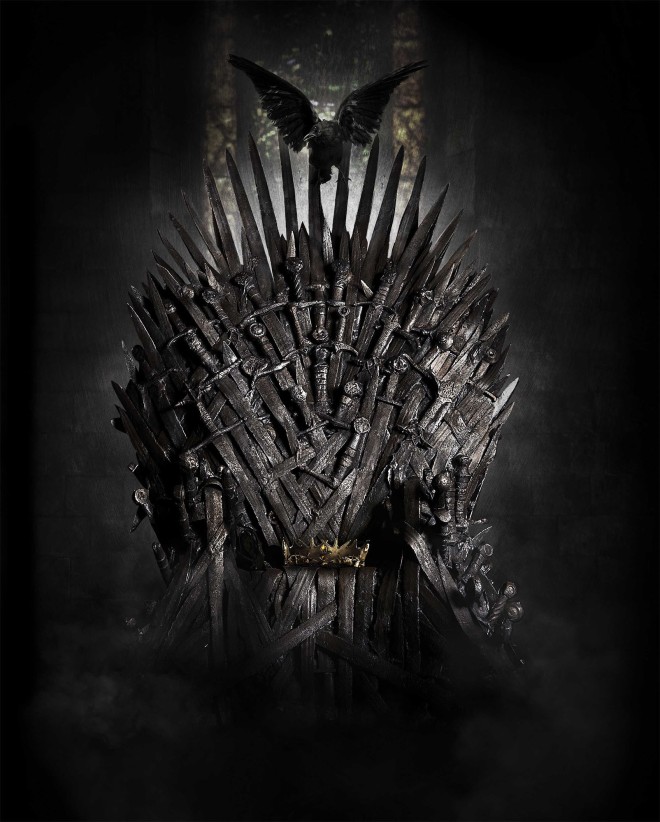 The quote attributed to Henry Kissinger, namely “Academic politics are so vicious precisely because the stakes are so small” is also seen as an instance of Sayre’s Law, that in any dispute the intensity of feeling is inversely proportional to the value of the stakes at issue. Kissinger probably said it, but so have many people before him and since. Woodrow Wilson as President of Princeton University in the years 1902 to 1910 observed sardonically that the intensity of academic squabbles was a function of the “triviality” of the issues being considered.
The quote attributed to Henry Kissinger, namely “Academic politics are so vicious precisely because the stakes are so small” is also seen as an instance of Sayre’s Law, that in any dispute the intensity of feeling is inversely proportional to the value of the stakes at issue. Kissinger probably said it, but so have many people before him and since. Woodrow Wilson as President of Princeton University in the years 1902 to 1910 observed sardonically that the intensity of academic squabbles was a function of the “triviality” of the issues being considered.
My recent introduction to the TV series Game of Thrones has been most instructive. Having missed the first three seasons I’ve had a bit of catching up to do with the complex stories that are woven into the somewhat dark fantasy. Of course, the parallels with other sagas like the Iliad or the Odyssey, or the Mahabharata are there- not for nothing is it said (of the Mahabharata), Yennéhâsti na tadkvacit, namely “What is not here is nowhere else”!
Inevitably, one is drawn to the parallels that can be made to life at our University. Although our setting is not particularly dark, we seem to have our share of complex stories that have been woven into a not very long history- after all, forty years is not much of a lifetime. But still, memories at the University run long and deep, and there is often an event in our present that echoes another in our past.
The GoT analogies are somewhat direct- each of the kingdoms is like a School of study, only there there are seven and here we have twelve. The continents of Westeros and Essos are very real entities indeed- these are our two cultures! Of course we are spared the relentless wars, but we do occasionally have minor battles over the limited resources that come our way, and the smaller the stakes, the more intense the combat!
 One of the questions playing on my mind, for instance is how many Schools of study should there be in the University? At present we have 12, but clearly we don’t cover all the areas of studies that a University should or could have. The manner in which we grow is therefore important, and there are many models that are available to us. There is admittedly a chicken and egg situation: What should one do first? We could decide by fiat or by committee (a near impossibility!) as to what is desirable. Or we could start courses- hit the ground running- and then worry about getting faculty. Or we can wait for someone else to tell us what to do. As it happens, all these models have been employed at the UoH at one time or the other in the past, and there is always an éminence grise who will tell me of this or that situation which was similar to that or this in the past. All very useful, of course, but often an impediment to action. Nevertheless, we need to think carefully about this, since the only reasons for the creation of new Departments, Centres, or Schools can be academic ones, and no other motivation needs to be operative. This is where other analogies from the Game of Thrones come into play- who shall be lord and who the king…
One of the questions playing on my mind, for instance is how many Schools of study should there be in the University? At present we have 12, but clearly we don’t cover all the areas of studies that a University should or could have. The manner in which we grow is therefore important, and there are many models that are available to us. There is admittedly a chicken and egg situation: What should one do first? We could decide by fiat or by committee (a near impossibility!) as to what is desirable. Or we could start courses- hit the ground running- and then worry about getting faculty. Or we can wait for someone else to tell us what to do. As it happens, all these models have been employed at the UoH at one time or the other in the past, and there is always an éminence grise who will tell me of this or that situation which was similar to that or this in the past. All very useful, of course, but often an impediment to action. Nevertheless, we need to think carefully about this, since the only reasons for the creation of new Departments, Centres, or Schools can be academic ones, and no other motivation needs to be operative. This is where other analogies from the Game of Thrones come into play- who shall be lord and who the king…
If one cannot learn from the past, one is doomed to make more mistakes- first the tragedy and then the farce as Marx famously said. But this could also be a millstone that simply does not allow us to evolve new patterns and new structures. It can be stultifying to have to grow within the same formats, especially if the format does not allow for flexibility. I do hope that collectively and individually we can find the way forward.
Given the momentous events of the week past, it is not possible to close without commenting on the other game of thrones, the one being played out in Delhi. This blogpost was written over a period of time that includes both the elections and it’s denouement. It is of immeasurable importance as to who is named the Minister for Human Resource Development as the policies and practices that are in force in the next few years will be crucial to the further growth of our University. The last two years of stasis have been an impediment that cannot be exaggerated, and while I do not anticipate the financial picture to become rosy overnight, one can only hope that the vision for change will be founded on sound principles of better education at all levels, especially the tertiary. And an unassailable respect for the autonomy of the University, our aims, and our aspirations.

Professor Ramaswamy, As usual I felt that you use the English language better than many English teachers!!! How well you write. Congratulations. Also I agree with you on much of what you have said especially about jealously guarding our integrity as an Institution of higher learning.
Mohan Ramanan
http://www.phdcomics.com/comics.php?f=1574
Hehe
Thought-provoking! New patterns and new structures, as you said, in academics, should rule, albeit on a firm, solid foundation. Rather than re-inventing the wheel, which may well mean checking if our email reaches instantaneously or over a gap of five-ten minutes. Charles F. Kettering, an American inventor, and holding 186 patents as per Wikipedia, said, ““If you want to kill any idea in the world, get a committee working on it.” Another piece of advice from him, echoing our ‘muhavara’, ‘karat-karat abhyaas ke, jadmati hote sujaan’, ” An inventor is simply a fellow who doesn’t take his education too seriously. You see, from the time a person is six years old until he graduates form college he has to take three or four examinations a year. If he flunks once, he is out. But an inventor is almost always failing. He tries and fails maybe a thousand times. If he succeeds once then he’s in. These two things are diametrically opposite. We often say that the biggest job we have is to teach a newly hired employee how to fail intelligently. We have to train him to experiment over and over and to keep on trying and failing until he learns what will work.” True in any situation.
Good one sir, hope we get HRD minister who goes by not having too many committees as Seema pointed out. As I see the need of having committees in UoH is to just satisfy few over-concerned rather than get going…
I disagree with “Seema” and also the mention in the post on “committee”. Though trained as an academic researcher for 20-years; my stint with ISRO’s lunar program for 5-years has taught me that the best way to have an issue resolved is by forming a very respectable, most experienced lastly, a complete “independent/un-biased” set of people taking call has offered the best solution. This could as well be treated as ISRO’s success in sending MOM (Mars Orbiter Mission) towards Mars covering 40-crore kilometers. The composition of the committee got to command respect from every group of individuals and hence avoiding favoritism at the end of the day; that seems to be the major flaw in forming a “committee”.